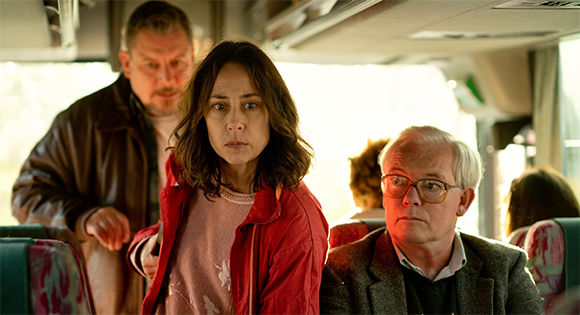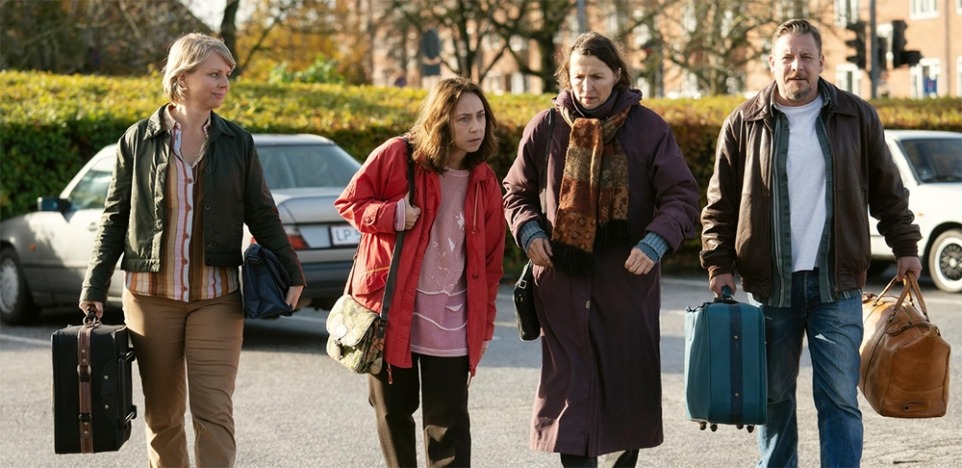Schizophrenia is a mental health disorder characterized by symptoms such as disorganized thinking, impaired cognitive function, delusions, and even hallucinations. Compounding their difficulties, people with schizophrenia often suffer from social stigma, with others judging them to be unpredictable and dangerous. But although it is a chronic condition, schizophrenia can be contained with medication, therapy, and support. This is the case with Inger (Sofie Grabol), in Rose. The character was inspired by screenwriter and director Niels Arden Oplev’s own sister with schizophrenia and another sister who is her caregiver.
Inger is living in a care home and is being watched over by her overprotective mother (Karen-Lise Mynster). At one point in her life, Inger lived in Paris and so her sister Ellen (Lene Maria Christensen) and her husband Vagn (Anders W. Berthelsen) decide to give her a chance to get away by taking her on a coach trip through France ending in Paris. When the tour group introduces themselves to each other, Inger announces that she has schizophrenia. Immediately, some other passengers, including a father (Soren Malling) who resents the inclusion of a “sick woman” on their tour, respond according to stigma. Others, including 12-year-old Christian (Luca Reichardt Ben Coker), are fascinated by her.

The trip itself brings out many sides of Inger, making the film itself both a drama and a comedy. Much to the tour members’ dismay, she insists on burying a hedgehog that has been killed on the highway, delaying their trip and its tight agenda. She is often fearful, especially at night and has to sleep near Ellen and away from windows and doors. In Paris, she proves to know a lot about the city and its cuisine and she speaks fluid French. She also has her own agenda for the trip, having to do with a relationship in her past.
No matter what Inger does, her sister and brother-in-law are there for her. Their love is infectious. As viewers we watch a gradual transformation in Inger’s interactions with others, although the director includes enough details for us to realize that she is dealing with an incurable condition. At first her manner of speaking and her cautiousness are off-putting. But she also is full of surprises, even for her sister. She proves, as many schizophrenics often do, that there is more to her than meets the eye. And we find ourselves grateful for the witness she makes for others like her.
(Photos by Martin Dam Kristensen - © Nordisk Film Production)
